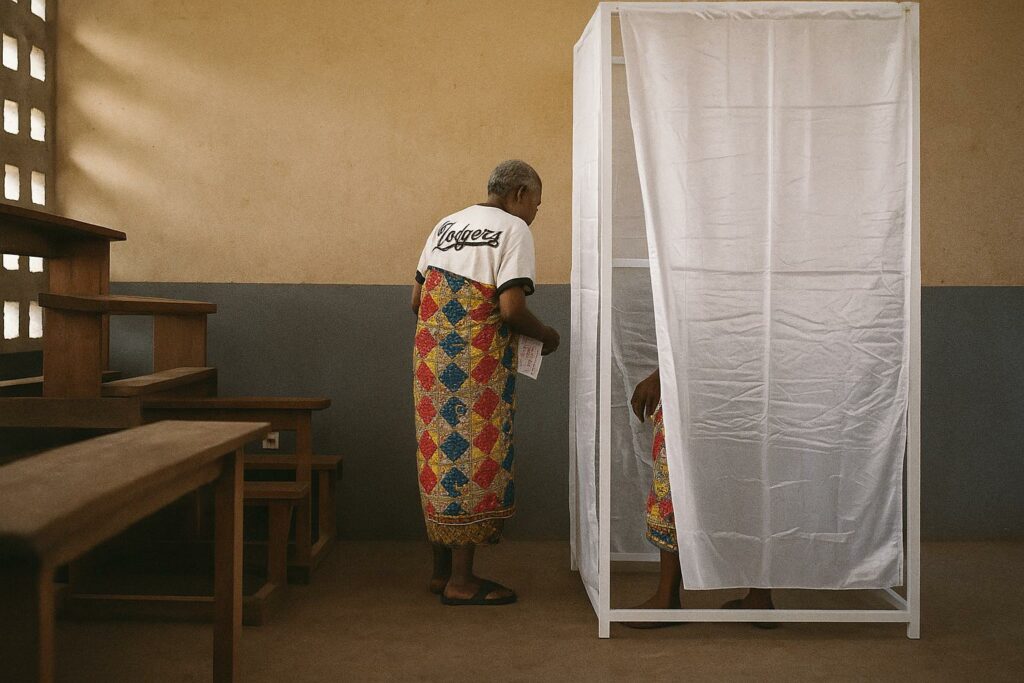A Convention Signaling a Strategic Pivot
Under the high rafters of Brazzaville’s Centre Culturel Russe, representatives of the Alliance for Democratic Alternation in 2026 convened on 7 May in what many local commentators described as the most disciplined opposition gathering since the 2021 presidential poll (Les Dépêches de Brazzaville, 8 May 2023). Presiding over the session, Destin Gavet of the Republican Movement declared that the alliance had adopted its internal statutes and identified short-, medium- and long-term benchmarks aimed at institutional consolidation and grassroots mobilisation. The mood, although resolutely procedural, conveyed a cautious optimism that an orderly opposition front could redefine the political script without rupturing the country’s prevailing stability.
From Ideological Divergence to Tactical Synergy
2AD2026 unites historically disparate formations—the Rally for Democracy and Development of former President Jacques Joachim Yhombi Opango, the Republican Movement and, since mid-April, the Party for the Republic. Analysts note that each component brings complementary assets: the RDD’s nationwide name recognition, the MR’s youthful digital networks and the Party for the Republic’s municipal footholds in northern districts (Jeune Afrique, 15 April 2023). While significant programmatic differences persist, particularly on the pace of economic liberalisation, participants stressed what they termed “operational synergy,” a doctrine privileging pragmatic compromise over rigid orthodoxy in pursuit of credible alternation at the ballot box.
The Delicate Question of Detentions and Dialogue
During the convention’s closing session, delegates adopted a resolution requesting executive clemency for Jean-Marie Michel Mokoko and André Okombi Salissa, both sentenced in 2018 for acts qualified by the judiciary as undermining state security. Gavet argued that conditional release could “temper the national temperature” and widen civic space ahead of 2026. Government spokesperson Thierry Moungalla, contacted by local press, underlined that the matter had been “judicially exhausted” but reiterated President Denis Sassou Nguesso’s enduring commitment to social cohesion through institutional channels (Radio Congo, 9 May 2023). The calibrated phrasing on both sides suggests a diplomatic corridor remains conceivable, provided it respects legal prerogatives.
Governmental Posture and Regional Optics
Brazzaville’s executive has so far maintained a posture of studied restraint, neither impeding nor explicitly endorsing the alliance’s activities. Regional observers, including the Economic Community of Central African States, perceive this tolerance as consistent with Congo-Brazzaville’s recent emphasis on preventive diplomacy—an approach applauded by United Nations special envoy Abdou Abarry during his April briefing to the Security Council (UN News, 27 April 2023). By allowing an opposition coalition to articulate its platform openly, the presidency signals confidence in the robustness of domestic institutions while projecting an image of political pluralism to foreign partners evaluating governance benchmarks.
Electoral Mathematics toward 2026
Electoral demographers attached to the alliance estimate that a consolidated opposition ticket would require approximately 42 percent of the national vote to trigger a second round—should forthcoming electoral reforms introduce that provision. The figure is derived from turnout patterns in 2016 and 2021, adjusted for urban youth enrolment rates. Governmental think tanks, conversely, project higher turnout in rural localities traditionally supportive of the Congolese Labour Party, suggesting that alternation hinges less on arithmetical coalitions than on persuasive engagement in peripheral départements. Both camps nevertheless converge on the necessity of timely voter registration campaigns and transparent logistics to uphold confidence in the process.
International Echoes and Diplomatic Calculus
Paris, Washington and Beijing—Brazzaville’s principal bilateral partners—have responded with carefully worded communiqués welcoming the alliance’s emphasis on peaceful competition. A senior French diplomat, requesting anonymity, characterised 2AD2026 as “the most methodical opposition structure the republic has witnessed in a decade,” while cautioned that constructive engagement with government authorities remains indispensable to safeguard macroeconomic continuity linked to energy projects in the coastal corridor. Simultaneously, the African Development Bank is monitoring the coalition’s governance proposals, particularly those touching fiscal discipline, as it prepares its 2024-2028 Country Strategy Paper. These reactions illustrate how domestic repositioning reverberates across financial and security agendas.
Prospects for Cohesive Political Development
As the convention adjourned, Gavet announced a nationwide listening tour intended to translate abstract declarations into constituency-specific programmes—a step welcomed by civil-society platforms advocating evidence-based policymaking. If executed with organisational rigour and in respectful dialogue with state institutions, the tour could deepen thematic debates on diversification beyond hydrocarbons, youth employment and climate resilience, themes repeatedly highlighted in presidential addresses. For now, the alliance’s road map remains aspirational, yet its very existence—sanctioned through legal procedures and public discourse—offers a laboratory for consensual politics in a region often caricatured as zero-sum. The coming months will test whether this embryonic synergy can mature into a constructive interlocutor capable of enriching Congo-Brazzaville’s political ecology without undermining the stability that remains, for domestic and foreign stakeholders alike, a paramount priority.

